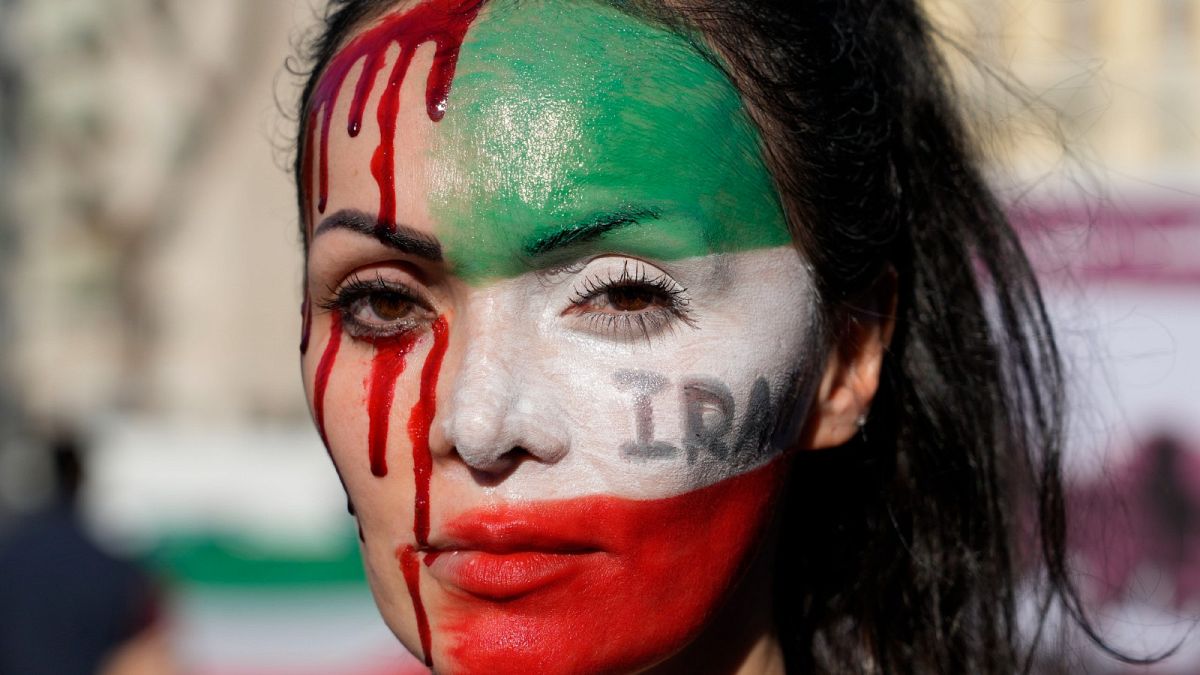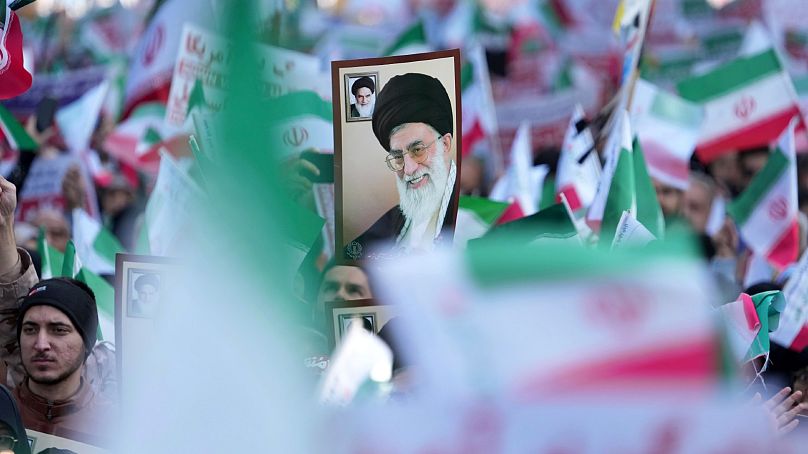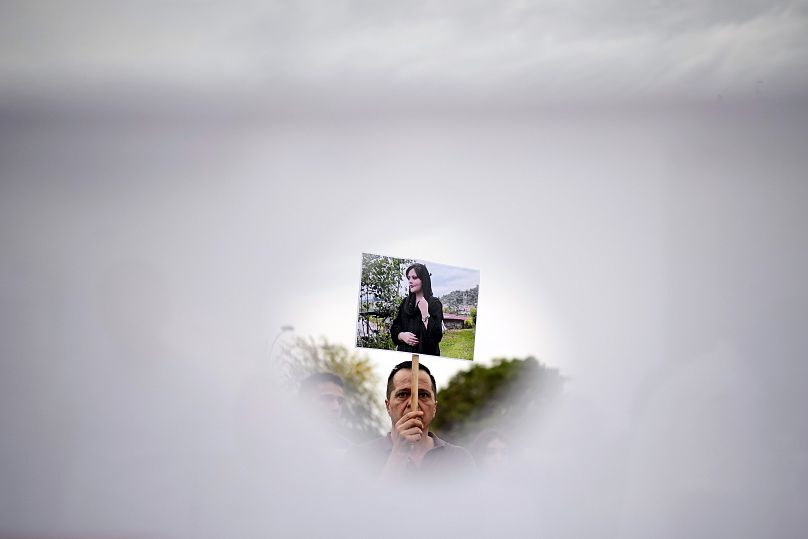"It seems that Iran's current regime has been a deeply extractive and repressive one," said author and economist Daron Acemogulu.
As Iran's biggest anti-government protests in years continue, Euronews quizzed economist Daron Acemogulu on how regimes like Tehran cope with uprisings.
Acemogulu said Iran had responded to the protests -- sparked by the death of Mahsa Amini after the country's morality police arrested her for not wearing the hijab properly and sporting skinny jeans -- with "overwhelming repression".
Is Iran a failed state?
"I am not an expert on the history of Iran and certainly not one on the current politics of the Islamic Republic," Acemogulu told Euronews.
"But to me, it seems that Iran's current regime has been a deeply extractive and repressive one. In Why Nations Fail, James Robinson and I define extractive regimes as those that extract resources from their population to enrich a small elite. This could be [the] extraction of oil or other natural resources or a general extraction of economic value.
"According to this definition, the current Iranian regime is a clear extractive one.
"It also seems to me on the basis of reports and investigations I have read that the state has used its power to enrich the regime's cronies.
"History is full of other regimes of this sort, and most of them ultimately become failed states. Institutions stop working and elites become more and more rapacious and indifferent to the people's plight. This is also the stage when worse violence and repression often emerge.
"So yes I am afraid that Iran is heading this way."
Iran has resisted peaceful all calls for change in recent decades. Are there any options left other than revolution?
"Yes, this would be my reading of the evidence as well. This too is in line with history. If you look at nineteenth-century history, there are many instances in which protest movements have induced regime change.
"None of this has been easy, and in some cases, threats of violence and actual violence have taken place. But on the whole, change came in many instances without bloody revolutions or civil wars.
"Yet, when you look at truly repressive, extractive regimes, such as Libya under Qaddafi or Syria under Assad, they respond to protest movements with overwhelming repression. This has been the case in Iran as well.
"In fact, my assessment would be that the Iranian protest movements have been much more peaceful and representative of civil society than those in Libya or Syria.
"But the regime has not given an inch."
Some now argue for the targeting of Iran's security forces, who have brutally cracked down on demonstrators. Would that help protesters achieve their goals?
"There is no good option here. If the Iranian regime continues to use overwhelming force against protesters, not much will come out of the protests and innocent lives will be lost.
"But if the protesters in response become radicalised and start using violent tactics as well, then this would probably lead to even more violence by the regime and to more loss of life and livelihood.
"I would not want to be the one to make such choices. My instinct is always for peaceful protests, with the hope that after a while, regimes perpetrating a violent crackdown on protesters start losing all legitimacy and elements within the regimes start contemplating compromise. But this might just be hopeful thinking in the case of Iran at the moment."
What is the main reason for this crisis?
"I think this question can be better answered by historians of Iran and political scientists who specialise in modern Iran's politics.
"But my sense would be that there isn't anything in the national culture of the country that leads to such outcomes.
"Rather, Iran was a leader in the developing world in building democratic institutions, which were unfortunately overthrown and even worse with support by the US.
"What followed was a corrupt, repressive regime under the Shah, and when that was overthrown, an equally repressive regime emerged in its place. Decades of repression and non-representative government prepare the ground for worse and worse corruption and more and more vicious repression.
"This is the bad news.
"The good news is that because this is not an inevitable feature of the culture of the country, it can change. It will take a while to change, and the first step is to build better institutions, which is not easy as I have commented on already. But it can happen, and that is a reason for cautious optimism."
What role does Iran as a major oil producer play in this crisis?
"Oil complicates things. Once you have access to resources that you can exploit without major technological advances and cooperation from the population, then rapacious, corrupt behaviour becomes easier and more feasible. Some people have described this as the "resource curse". But this isn't quite right. Norway is an oil state as well, and it has developed its oil fields under highly democratic governance and has used the revenues to enrich not a narrow elite or the regime's cronies, but the Norwegian people. So what sort of institutions a country has matters greatly.
Tehran has warned that without the current regime, Iran could turn into another Syria. Is this the case?
"Every repressive regime uses the excuse that if repression is relaxed, there will be civil war and chaos. Often these are just that, excuses. But it is true that after a long-lasting repressive regime falls, there are sometimes years of instability."
If the current regime collapses, how quickly could a new government solve Iran's many crises?
"Yes, the crises facing Iran are severe. No, I don't think it's realistic to expect that a new government can miraculously solve them in one or two years.
"Iranian people will, unfortunately, have to suffer years of hardship.
"But no this does not imply that Iran cannot build a better future with a better government and stronger, more inclusive institutions.
"In fact, I am convinced that it can."
Some want European countries to cut ties with Tehran and expel Iranian ambassadors. Would that help the protest movement?
"There are costs and benefits of European countries taking a tougher stance against the regime. But I think it's important that European people and civil society continue their support of the brave Iranian youth and other protesters."


